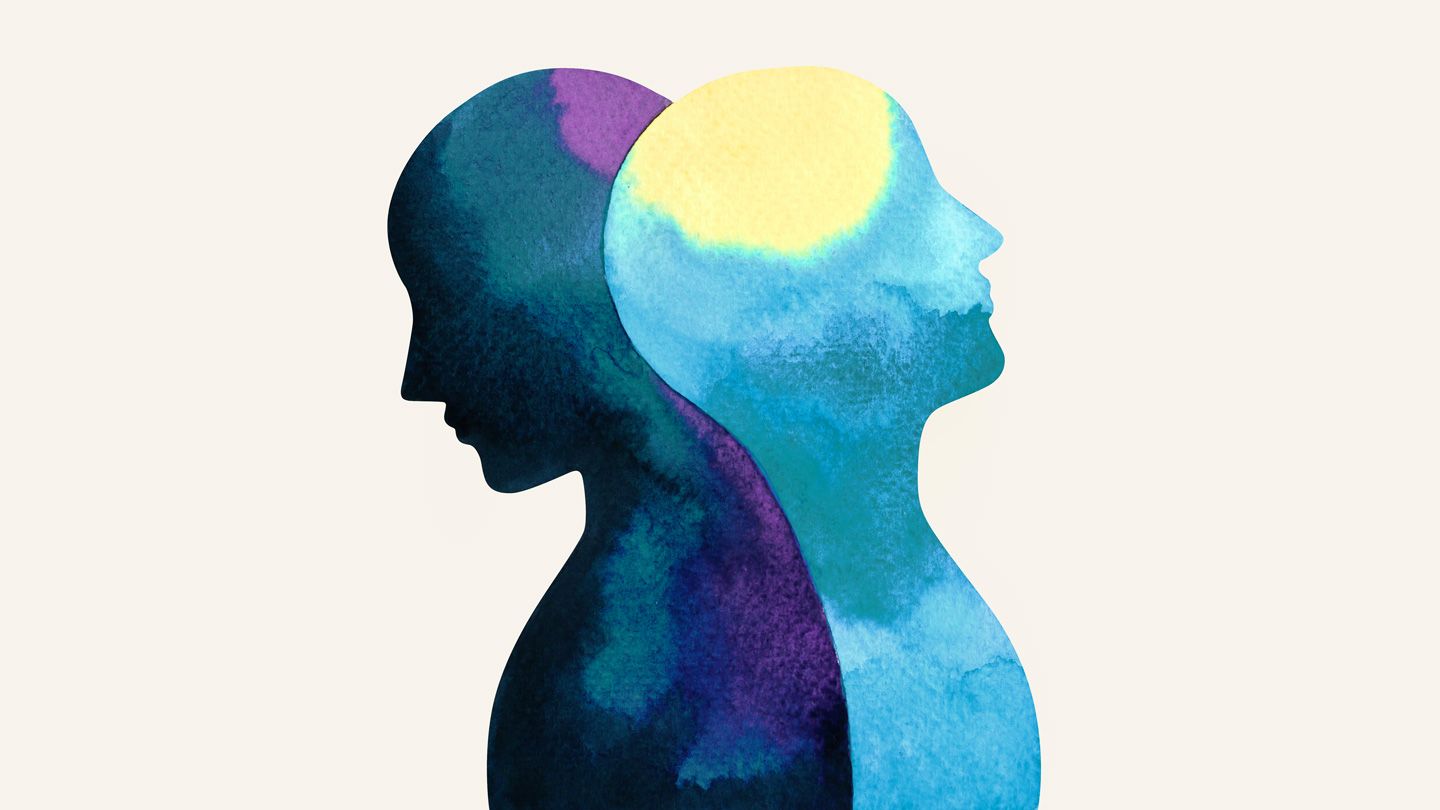
Bipolar disorder is a complex mental health condition that affects millions of people worldwide, disrupting their mood, energy levels, and ability to function in daily life. As with many mental health disorders, understanding the signs and symptoms of bipolar disorder is crucial for early diagnosis and intervention. At Enhance Health Group in Orange County, we specialize in providing comprehensive and individualized treatment plans designed to help individuals manage bipolar disorder and lead healthier, more balanced lives. This article will guide you through the signs, symptoms, and available treatment options, shedding light on how professional help can make a significant difference.
What is Bipolar Disorder?
Bipolar disorder, previously known as manic-depressive illness, is a mental health condition characterized by extreme shifts in mood, energy, and activity levels. These mood swings can range from manic episodes, where a person feels excessively energetic or euphoric, to depressive episodes, where they may feel sad, hopeless, and fatigued. These shifts can last days, weeks, or even months, often causing significant disruption to a person’s personal and professional life.
At Enhance Health Group, we understand that bipolar disorder is more than just mood swings—it’s a serious mental health condition that requires specialized care. Our team in Orange County provides tailored treatment plans that address the unique needs of each individual, helping them regain control over their lives.
Signs and Symptoms of Bipolar Disorder
1. Manic Episodes
During a manic episode, individuals may experience a heightened mood or irritability. Common symptoms include:
- Increased energy and activity: Feeling unusually energetic, restless, or “wired.”
- Reduced need for sleep: Going days with little or no sleep and still feeling energetic.
- Racing thoughts: Thoughts come quickly and may be difficult to organize.
- Impulsivity and risky behavior: Engaging in high-risk activities such as reckless driving, spending sprees, or risky business decisions.
- Inflated self-esteem: A feeling of grandiosity, where the person may feel invincible or have unrealistic beliefs in their abilities.
2. Depressive Episodes
The depressive phase of bipolar disorder can be just as extreme as the manic phase but at the opposite end of the emotional spectrum. Symptoms include:
- Persistent sadness or hopelessness: A feeling of overwhelming sadness or emptiness.
- Loss of interest: Losing interest in activities that were once enjoyable.
- Fatigue: Feeling physically and mentally exhausted, often with no motivation.
- Changes in sleep patterns: Either insomnia or sleeping too much.
- Difficulty concentrating: Trouble making decisions or focusing on tasks.
- Suicidal thoughts: In severe cases, individuals may experience thoughts of self-harm or suicide.
3. Mixed Episodes
In some cases, individuals may experience symptoms of both mania and depression at the same time, a condition known as a mixed episode. This can be particularly challenging, as the combination of high energy and depressive thoughts can increase the risk of dangerous behaviors.
Types of Bipolar Disorder
There are several types of bipolar disorder, each with its own pattern of mood swings and severity:
1. Bipolar I Disorder
Characterized by manic episodes that last at least seven days or by manic symptoms severe enough to require hospitalization. Depressive episodes are also common and can last two weeks or more.
2. Bipolar II Disorder
Defined by a pattern of depressive episodes and hypomanic episodes (a less severe form of mania). While the mania may not reach the intensity of Bipolar I, the depressive episodes can still be severe and disabling.
3. Cyclothymic Disorder
Involves periods of hypomanic symptoms as well as depressive symptoms that last for at least two years. However, the symptoms are not as severe as those of full-blown manic or depressive episodes.
4. Rapid Cycling
Some individuals experience four or more episodes of mania, hypomania, or depression within a year. This rapid cycling can make the disorder more difficult to manage.
At Enhance Health Group in Orange County, our experienced team offers a range of treatment options tailored to the specific type of bipolar disorder each individual is facing. Understanding the specific type of bipolar disorder is key to developing an effective bipolar disorder treatment plan.
Causes and Risk Factors
While the exact cause of bipolar disorder is unknown, a combination of genetic, biological, and environmental factors likely play a role. Some key risk factors include:
- Genetics: Individuals with a family history of bipolar disorder are at a higher risk of developing the condition.
- Brain structure and function: Certain abnormalities in the brain may increase the risk of developing bipolar disorder.
- Environmental factors: Stressful life events, such as trauma or significant life changes, may trigger the onset of bipolar disorder or exacerbate symptoms.
Diagnosis of Bipolar Disorder
Diagnosis is a critical step in understanding bipolar disorder and finding the right treatment plan. At Enhance Health Group, our trained mental health professionals in Orange County use a combination of interviews, psychological assessments, and medical history reviews to diagnose bipolar disorder accurately. Our goal is to ensure each individual receives a personalized diagnosis that considers all aspects of their mental and physical health.

Treatment Options for Bipolar Disorder
Managing bipolar disorder requires a comprehensive treatment pclan that often includes a combination of medication, psychotherapy, and lifestyle changes. At Enhance Health Group, we offer evidence-based treatments that are customized to meet the unique needs of each individual.
1. Medication
Medication is often the cornerstone of bipolar disorder treatment and can help manage mood swings. Common medications include:
- Mood stabilizers: Such as lithium, which helps prevent extreme highs (mania) and lows (depression).
- Antidepressants: Sometimes prescribed to manage the depressive phase, although they must be carefully monitored to avoid triggering manic episodes.
- Antipsychotic medications: These can help control severe manic or depressive episodes, especially if mood stabilizers are not effective on their own.
At Enhance Health Group, our mental health professionals in Orange County work closely with individuals to monitor their medication regimen, ensuring it is both safe and effective.
2. Psychotherapy
Therapy plays a vital role in helping individuals understand and manage their bipolar disorder. Common therapeutic approaches include:
- Cognitive-behavioral therapy (CBT): Helps individuals recognize negative thought patterns and develop healthier ways of thinking.
- Interpersonal and social rhythm therapy (IPSRT): Focuses on stabilizing daily rhythms, such as sleep patterns, to reduce the likelihood of mood swings.
- Family therapy: Involves loved ones in the treatment process, providing education and support to family members while improving communication and relationships.
Enhance Health Group offers a variety of therapy options that can be tailored to an individual’s specific needs, ensuring that they receive the support necessary to manage their condition.
3. Lifestyle and Support
In addition to medication and therapy, certain lifestyle changes can make a significant impact on managing bipolar disorder. These include:
- Regular exercise: Physical activity can help stabilize mood and improve overall well-being.
- Healthy diet: A balanced diet can help regulate energy levels and support mental health.
- Sleep hygiene: Maintaining a consistent sleep schedule is crucial for managing mood swings.
- Support networks: Joining support groups or engaging with others who understand the challenges of bipolar disorder can provide valuable emotional support.
At Enhance Health Group, we believe in a holistic approach to treatment, offering resources and guidance for making these lifestyle changes. Our team in Orange County is committed to supporting individuals every step of the way.
The Importance of Early Intervention
Early diagnosis and treatment of bipolar disorder are critical to improving outcomes and preventing the disorder from worsening. The longer the condition goes untreated, the more disruptive it can become. Early intervention can help individuals avoid severe mood episodes, maintain relationships, and continue functioning in their daily lives.
At Enhance Health Group, we emphasize the importance of seeking help as soon as possible. Our comprehensive treatment plans are designed to provide individuals with the tools they need to manage their condition and lead fulfilling lives.
Frequently Asked Questions
1. What is bipolar disorder?
Bipolar disorder is a mental health condition characterized by extreme mood swings that include emotional highs (mania) and lows (depression).2. How is bipolar disorder diagnosed?
Bipolar disorder is diagnosed through a comprehensive assessment by a mental health professional, which may include interviews, psychological evaluations, and medical history reviews.3. What are the common symptoms of bipolar disorder?
Common symptoms include extreme mood swings, periods of high energy and impulsivity (mania), and periods of sadness, fatigue, and hopelessness (depression).4. Can bipolar disorder be treated?
Yes, bipolar disorder can be managed with a combination of medication, psychotherapy, and lifestyle changes. Early diagnosis and treatment improve outcomes.5. What types of therapy are used to treat bipolar disorder?
Therapies such as Cognitive Behavioral Therapy (CBT), Interpersonal and Social Rhythm Therapy (IPSRT), and family therapy are commonly used to treat bipolar disorder.6. What medications are typically prescribed for bipolar disorder?
Mood stabilizers, antidepressants, and antipsychotic medications are commonly prescribed to manage the symptoms of bipolar disorder.7. Can lifestyle changes help manage bipolar disorder?
Yes, regular exercise, a healthy diet, good sleep hygiene, and a strong support network can help individuals manage bipolar disorder effectively.8. How can Enhance Health Group help with bipolar disorder?
Enhance Health Group in Orange County offers personalized treatment plans, including medication management, therapy, and holistic support to help individuals manage their condition.9. Is bipolar disorder hereditary?
Bipolar disorder can run in families, but not everyone with a family history will develop the condition. Genetics, combined with environmental factors, play a role.10. What should I do if I think I have bipolar disorder?
If you think you have bipolar disorder, it’s important to seek professional help for an accurate diagnosis and to explore treatment options. Contact Enhance Health Group for expert guidance.Conclusion
Bipolar disorder is a challenging but manageable condition when addressed with the right treatment plan. Understanding the signs, symptoms, and available treatment options can empower individuals and their families to seek the help they need. At Enhance Health Group in Orange County, we are dedicated to providing personalized, compassionate care for those living with bipolar disorder. With the right combination of medication, therapy, and lifestyle changes, individuals can regain control of their lives and thrive.
If you or a loved one is experiencing symptoms of bipolar disorder, don’t hesitate to reach out to Enhance Health Group. Our team of experienced mental health professionals is here to help you navigate the complexities of bipolar disorder and provide the support needed to achieve long-term stability.